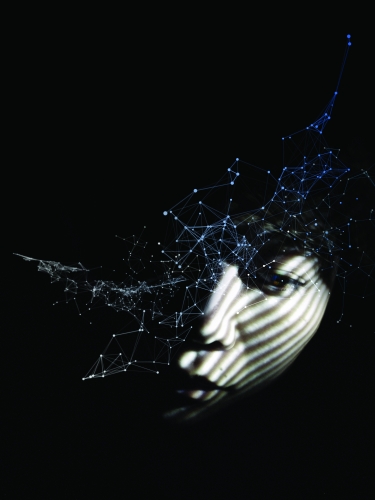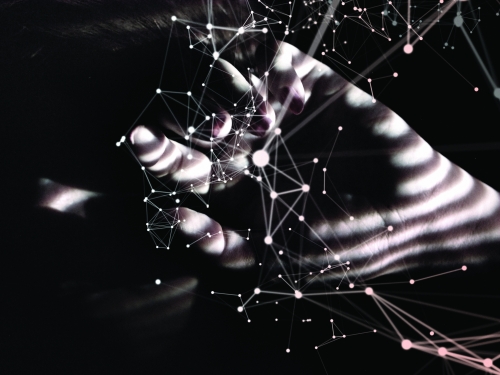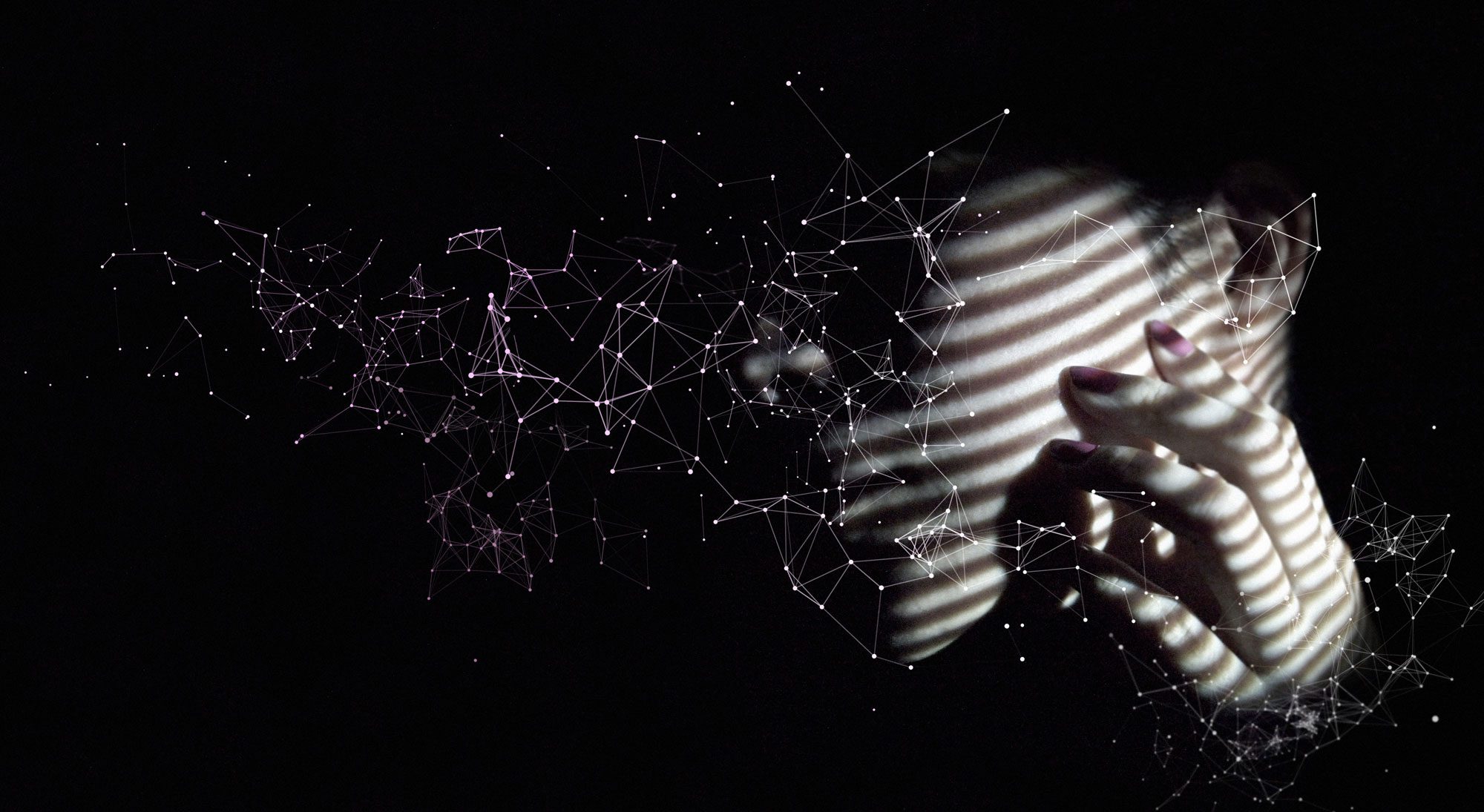I would have made a good 17th-century melancholic. Even as a child I was dreary. I remember my mother yelling at me to smile more, like the other kids. I tried, but secretly I didn’t see the point; grinners just didn’t understand the world. Even waking up to a sunny summer day could fill me with dread. A beautiful day only underscored the impermanence of happiness. Beauty today meant rain and wind would get me later for sure.
Becoming a writer was a good-enough cover for bouts of nihilism, depression, and black apparel. But when I had a child, J, who turned out to have serious health problems and autism, I had to look straight into the darkness, with no place to hide, no pose to hold, and really figure out how I believed the universe worked and how I was going to continue to live in it.
When you are told your child has a serious disability, while you’re still in shock, it is common for you, the mother, to be handed an essay, “Welcome to Holland,” by Emily Perl Kingsley. It’s a piece that would not be out of place on a Hallmark card. It compares finding out that you are living every expectant parent’s worst nightmare to being on a plane to Italy but finding yourself landing in Holland instead. So once you get over yourself—I want the Trevi Fountain! Pasta Puttanesca!—and learn to appreciate the tulips and wooden shoes, you’ll be able to see that what happened to you is not what you planned but wonderful in its own way.
No disrespect to Ms. Kingsley (who has a child with Down syndrome), but the women in the excellent parenting group I had the luck to find had only two words for this poem: fuck that. Sometimes a new member came in complaining about “Welcome to Holland,” and we could only cackle. Raising a disabled child can sound noble, but we knew what it meant: screaming fits that lasted for hours, painful bowel problems, seizures, self-injurious behavior, extra large diapers, days and weeks swallowed by doctors’ visits, never hearing the word Mommy.
In our group, we talked about how we all have points when we hate our lives, not because our children are burdens but because we can’t make them happy, or sometimes even comfortable. What bigger failing is there for a parent than not being able to comfort her own child? One parent of a teen spoke of how she had to lock her in the garage and stick her own head in the shower when the second hour of high-pitched screaming pushed her near the edge. (Autism carries with it a 90 percent divorce rate, and the latest awful trend is parents—including a former Bush administration official—killing their children, sometimes in murder-suicides.)
It’s not easy being the embodiment of your friends’ nightmares: “I couldn’t do what you do.” “You’re a saint.” “Oh my God, I’m so glad this didn’t happen to us!” The secular take of many of my friends—“Sorry, you’re fucked”—did have the virtue of providing a straightforward cosmological universe to navigate. What I understood less was the Christian universe. On the one hand, we were told to pray that poor J would get better. On the other hand, we were instructed to accept God’s divine plan, as difficult as it was, that it was a test of our faith to not to be angry at God. But I wasn’t angry at God; I just didn’t even know anymore who God was.
With our son’s disability and medical issues (that he cannot sit quietly is the least of it), attending church became, like air travel, summer vacations, and eating at restaurants, just another activity Karl, my husband, and I couldn’t do anymore. With Sundays suddenly free, there was the strange silence that follows a broken habit; I had time to contemplate: Why did I attend church? Because I am a Christian. Why am I a Christian? Because my parents are. Is that it?
I had always enjoyed church, knowing there was something bigger than myself out there. But mostly I enjoyed the people. For someone growing up in rural Minnesota, the church (ours, Presbyterian) was a major social organizing principle. In college, my roommate’s grandfather was an Episcopal bishop, and part of our close relationship involved attending chapel together. As a 20-something alone in New York, I found solace in the tiny Christ and Saint Stephen’s Church near my apartment. Karl and I volunteered at the soup kitchen at the Cathedral of Saint John the Divine. Later I attended a Korean church. Then, as a struggling Fulbright Scholar in Korea, I was overjoyed to find an English-language ministry.
At a Fulbright function, I fell into a conversation with a minister from a famous Presbyterian missionary family that had been in Korea for generations. As I lamented my difficulty learning Korean, he informed me that the missionary community referred to Korean as “the devil’s language,” by which he meant it was so difficult for the new missionaries to learn that it kept the natives from Christ for far too long. With his self-righteous certainty and blatant misogyny, this white man embodied every stereotype I held about missionaries. He was married to a native Korean woman, and they had two adopted Korean children, who did not speak a word of Korean. No devil’s language for the kids. When I asked him whether it might be a little sad that his wife couldn’t speak to the kids in her, and their, native language, he looked baffled; it obviously had never occurred to him.
When I was growing up, I was under the impression that Koreans were a Christian people. Everyone we knew were Christian, and there were so many Korean-American churches. But in Korea, I came to view Christianity as a minority religion. Depending on whom you ask, 10 to 30 percent of the population of South Korea is Christian, while the rest practice variations of a complex mix, often a blend, of Buddhism, shamanism, Daoism, Confucianism, indigenous folk beliefs and practices, and other teachings, including a humanist theology called Chondogyo, which is also gaining popularity in North Korea.
For people like my parents, adopting Christianity and, by extension, Western ways, was practical. The missionaries who came knocking on their doors offered boarding school, which meant free food and English lessons, and those English lessons were a link in the chain of events that eventually permitted them to immigrate to the U.S.
In Korea, the Christians I attended church with—an English-language congregation and my aunt’s Presbyterian one—were constantly pounding into our heads that our Christian duty was to save our Korean relatives from their own heathenism, stopping them, physically if necessary, from going to the shaman or the fortune-teller or the Buddhist temple and dragging them to church. In contrast, the non-Christians of varied spiritual persuasions seemed to welcome all and did not impose their views on those who were different.
While doing research for my Fulbright project, a novel, I worked at an unwed mothers’ home, a place that provided a haven for young women with unintended pregnancies. But that haven came with a catch: the home was a church-sponsored program and required the women to attend religious services in return for housing, food, and prenatal care. And, of course, placing the baby for adoption by Americans was highly encouraged. Some of the women asked me to explain Christianity, and in my bad Korean I probably made it sound even weirder to them than it might otherwise have sounded—how does one explain the Resurrection and Transfiguration, eating the body and blood of Christ?

Many women, rewarded by huge baptismal parties, did convert, though these conversions often didn’t seem truly meaningful. The women studied their Bibles zealously (if there’s anything the Korean people have a talent for, it’s studying), memorizing passages and rituals and saying their ahhhhh-mehns. But they seemed to regard the conversion as less about being “born again” than signing up for, say, a different political party. Some of them, much to the frustration of the ministers, seemed to regard Yesu Christo as just another in the pantheon of numerous Korean gods. I understood this completely, though, as much of Korean spirituality is less what you are (as in “Are you Jewish? Catholic? Protestant?”) than it is a pastiche of folk rituals and spirituality interwoven into the fabric of daily life. At the Buddhist temple, no one minds if you throw in a little Daoism or ancestor worship or if you call the shaman for an exorcism when you have a headache or if you trot off to church on Sundays. Lowering the fixed orthodoxy and exclusivity of the Christian religion onto the more nuanced and intermixed and changing character of Korean spirituality was like trying to lasso water.
When I was growing up, our family took occasional trips to Korea, during which my father performed ancestor worship—a sight that so freaked out my very Americanized brother that he started weeping. This was exactly the sort of thing the Korean Presbyterian minister in the gigantic stone church in Myeongdong, which we attended on Sundays, claimed would send us all to hell. But my father considered himself very Christian and very up on his Bible and a good Korean son. When, as an adult, I visited a Buddhist temple with my family, I wanted to submit a prayer, half jokingly, for a little extra help for my husband’s dissertation. My father took up the calligraphy brush and—zip-zip-zip!—inked the prayer and added a few requests of his own. It was clear he had done this before. When I asked, “So what were you, before—you know, before the missionaries got you?” he shrugged, “Nothing.” There is so much more behind this terse statement; it is a double, triple sadness to me that my father has passed on and can’t tell me. It was exactly the type of answer he would give me when I asked him about emigrating straight from Korea to Jim Crow Alabama: What kind of experiences with racism did he have? Did he sit in the front or back of the bus? He’d only reply, “I didn’t ride the bus.”
My first jerky steps away from my lifelong religious beliefs occurred thanks to Herman Melville.
After we’d been churchless for a few years, we were sort of forced to take a vacation. It was a vacation in name only. With our son, unhappy at home but unhappier still in unfamiliar surroundings, our rare trips were a torture we undertook for the sake of family. My husband’s brother was about to move across the country, and we were renting a beach house together for a week.
One day we all went to the Whaling Museum in New Bedford, Massachusetts. One of my favorite books was Moby-Dick, so I was particularly excited to visit the nearby Seamen’s Bethel, a chapel Melville himself had attended. While my husband wrangled our son, I slipped away for a little author worship.
“That’s exactly the seat Melville sat in when he came here,” said the docent. I was the only person in the place. “He’d take notes, just like you.” I didn’t know whether to be charmed or cynical—I’m sure that was the standard docent’s line he used with every Melville fan. He tottered back downstairs, leaving me alone. The stillness settled like dust.
What does one do in a chapel like this? Had it been decommissioned, desanctified, kept up for looks only? Or was it still a holy place? Sitting in the pew reminded me I hadn’t been in a church in ages.

I was in my early forties then, kind of late in the game, but I had to acknowledge that the Christian faith in which I had been raised was drifting out of my sight. But this didn’t leave me bereft. Without it, I still had moments of peace and grace and, well, divinity, which I happened to be feeling right then in that chapel with the ghost of Melville as my witness. But it wasn’t a churchy-God-Jesus feeling; it was a simpler sensation of oneness, one that I felt when I was meditating. Ever since I was 9, I’d felt a strong pull toward something I’d later recognize as Buddhism. Even as a kid I did my own version of meditation, sitting very still, closing my eyes, and trying to empty my mind of thoughts (and causing my mother to shout at me when she caught me doing it, hidden, I thought, in the backyard).
Images of the Buddha were and continue to be familiar and comforting to me. Since I’d stopped going to church, I’d given myself permission to end my nightly prayers, but I still meditated. I also identified the special feeling of oneness as something that occurred when out in nature, especially around trees and inanimate objects not thought to be biologically alive: stones, rivers, dirt. I’d also been fascinated with crystals ever since I was young, not even knowing that my Korean name meant “brilliant crystal.” My office was festooned with quartz crystals, seashells, twigs, which I swore helped me write. This element of “oneness” was veering dangerously toward New Age–ness, and my sister, a born-again Christian, warned me that I was taking the down escalator to hell. But I couldn’t help what I was starting to believe.
When my father passed away, it was a natural thing to create a shrine in our house, something that provoked discomfort during family visits but was rarely mentioned. On his birthday and holidays, I lit his candle and bowed three times, the way he had done for his ancestors.
My father had willed me his diaries, which he’d kept since the 1940s. Reading them, I realized that this New Age religion I was assembling for myself actually hewed closely to the traditional Korean animism that believes in the oneness of all things. Was I then just reclaiming my family’s original state before the missionaries “got” them? Maybe. I did know I was letting go of my fear of eternal damnation while I tentatively embraced an uncertain world without a dogma I had to follow.
Like recognizing the blind but glorious gropings that go into the first pass at a novel, I knew that my new spirituality was leading me somewhere. It was as if I were in a pitch-black desert night, surrounded by cacti and spiny things, yet knowing there was a way waiting for me, an unmapped way, but a way of my own. This was not a Pollyanna-ish “Holland” acceptance without insight but a way to engage by observing and experiencing deeply, without judgment and with compassion. It is exactly the state I can achieve when my writing is going well.
I am finally comfortable with my mixed-breed spirituality. Pantheist. Buddhist. Korean animist. Nature worshiper. And Christian—as Thomas Merton suggested, Jesus and Buddha have a lot in common. Once, not being able to pin down my beliefs would have made me anxious; I’d have accused myself of being a dabbler with commitment issues. But now I see that mouthing someone else’s words doesn’t make them true, and being open to all things adds to the richness of one’s spiritual life. I am confident I can know my own truth without someone else approving it. Because of my son, my writing, and the divine spirit of the universe, I am no longer sitting at a distance from my own life—scared, angry, wondering why I am being punished. I can live into life. That is grace and that is God, once lost and now found.
♦
A version of this essay first appeared in Rumpus Women: Personal Essays by Women, Volume 1 © 2010.
Thank you for subscribing to Tricycle! As a nonprofit, we depend on readers like you to keep Buddhist teachings and practices widely available.
